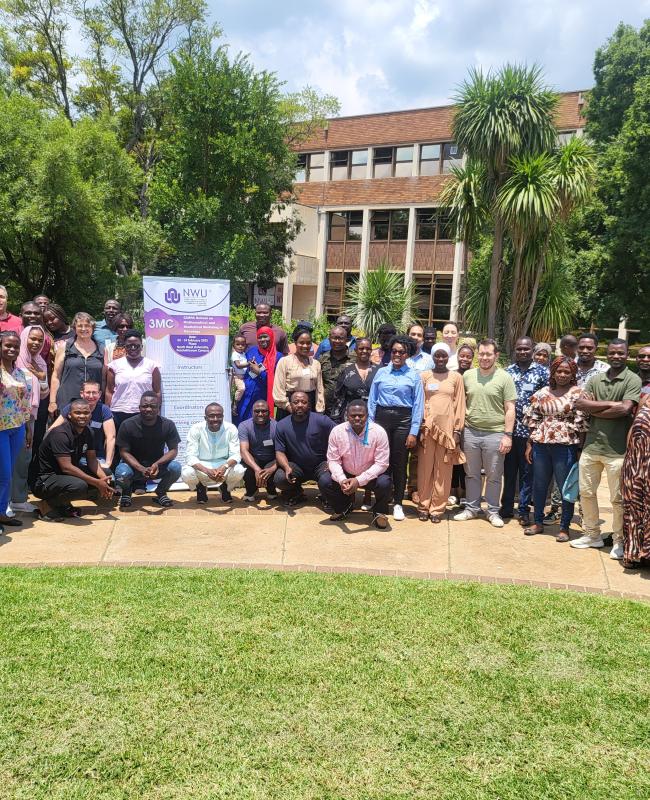Till December 2025, CIMPA has organised 450 CIMPA Schools in 73 Countries that are listed below (written in brackets are the number of schools and the year of the different schools):
Albania (2 schools in 1993, 2022)
Algeria (8 schools in 2003, 2005, 2008, 2014, 2016, 2019, 2021, 2025)
Argentina (21 schools in 1996, 2000, 2003, 2006, 2008, 2010-2013, 2015-2019, 2023, 2025)
Armenia (2 schools in 2008, 2025)
Bangladesh (2 schools in 2019, 2022)
Benin (6 schools in 1997, 2012, 2014, 2018, 2022)
Brazil (15 schools in 1993, 1999, 2001, 2003, 2013, 2015, 2017, 2019, 2021-2024, 2025)
Burkina Faso (5 schools in 1998, 2009, 2012, 2021, 2025)
Burundi (2 schools in 2021, 2024)
Cameroon (8 schools in 1999, 2007, 2009, 2011, 2016, 2019, 2024, 2025)
Chad (2 schools in 2023-2024)
Chile (13 schools in 1991, 1994, 1996, 1999, 2001, 2004, 2010, 2014-2016, 2019, 2025)
China (15 schools in 1991, 1993, 1994, 1996-2002, 2004, 2006, 2010, 2025)
Colombia (17 schools in 1999, 2001, 2003, 2007, 2011-2014, 2016, 2018, 2019, 2022-2024)
Congo-Brazzaville (1 school in 2022)
Cuba (9 schools in 2000, 2006, 2013, 2016, 2017, 2019, 2023, 2025)
Democratic Republic of Congo (2 schools in 2011, 2018)
Dominican Republic (1 school in 2023)
Ecuador (1 school in 2017)
Egypt (5 schools in 1989, 1999, 2007, 2009, 2022)
El Salvador (2 school in 2022, 2024)
Ethiopia (1 school in 2021)
France (54 schools in 1979-1996, 1999, 2009)
Gabon (1 school in 2023)
Ghana (1 school in 2024)
Hungary (1 school in 2002)
India (20 schools in 1995, 2002, 2003, 2005, 2008, 2013-2017, 2019, 2022, 2023, 2025)
Indonesia (7 schools in 2009, 2011, 2014, 2020, 2025)
Iran (9 schools in 2005, 2006, 2008, 2009, 2015, 2019, 2021)
Iraq (1 school in 2014)
Ivory Coast (4 schools in 2014, 2016, 2017, 2025)
Jamaica (1 school in 2017)
Jordan (1 school in 2005)
Kenya (2 school in 2015, 2025)
Laos (3 schools in 2012, 2014, 2017)
Lebanon (9 schools in 2004, 2007, 2010, 2012, 2014, 2017, 2018, 2022, 2023)
Madagascar (7 schools in 2008, 2016, 2019, 2021, 2022, 2024)
Mauritania (4 schools in 1998, 2005, 2016)
Mauritius (1 school in 2016)
Malaysia (1 school in 2006)
Malawi (1 school in 2023)
Mali (1 school in 2010)
Mexico (14 schools in 2003, 2006, 2012-2014, 2016, 2018, 2021, 2022, 2023)
Mongolia (5 schools in 2013, 2015, 2017, 2021)
Morocco (29 schools in 1999, 2000, 2002, 2004, 2007-2009, 2012-2021, 2023, 2025)
Namibia (1 school in 2023)
Nepal (5 schools in 2010, 2014, 2018, 2019, 2023)
Niger (1 school in 2002)
Nigeria (4 schools in 1985, 1987, 2013, 2017)
Pakistan (10 schools in 2007-2009, 2012, 2014, 2018, 2021, 2022, 2024)
Palestine (1 school in 2014)
Panama (1 school in 2015)
Peru (7 schools in 2004, 2006, 2008, 2010, 2015, 2017)
Philippines (10 schools in 2000, 2005, 2007, 2009, 2013, 2014, 2020, 2022-2024)
Romania (2 schools in 2003, 2005)
Russia (1 school in 2017)
Rwanda (1 school in 2021)
Saoudi Arabia (1 school in 2012)
Senegal (13 schools in 2001, 2010-2017, 2021, 2022)
South Africa (12 schools in 2007, 2011, 2013, 2015, 2018, 2020, 2022, 2023, 2025)
South Korea (2 schools in 2015, 2018)
Spain (3 schools in 1996, 2006)
Sri Lanka (1 school in 2004)
Syria (1 school in 2004)
Taiwan (1 school in 2004)
Thailand (3 schools in 2011, 2013, 2024)
Togo (2 schools in 2018, 2021)
Tunisia (20 schools in 1986, 1995, 1996, 2004, 2005, 2009, 2011-2013, 2015, 2016, 2018, 2019, 2022, 2024, 2025)
Turkey (11 schools in 2005, 2007, 2008, 2010, 2014, 2015, 2017, 2022, 2023, 2025)
Ukraine (1 school in 2011)
Uruguay (8 schools in 1995, 2003, 2007, 2010, 2012, 2015, 2016, 2019)
Uzbekistan (4 school in 2018, 2021, 2024, 2025)
Venezuela (3 schools in 2002, 2006, 2012)
Vietnam (14 schools in 1997, 1998, 2001, 2006, 2007, 2010, 2011, 2013, 2016-2019, 2021, 2024)


